Photo Contest to Celebrate International Tiger Day
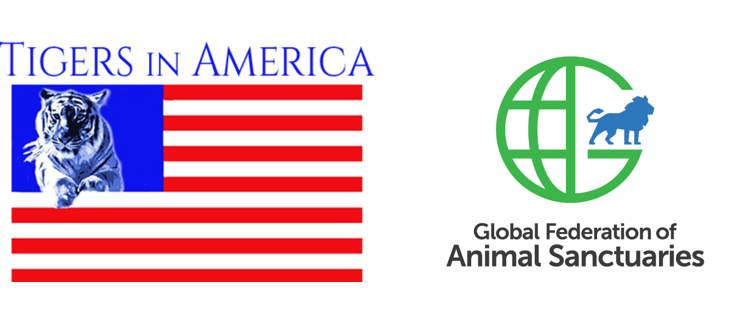
Tigers in America and the Global Federation of Animal Sanctuaries are pleased to announce our annual photo and video contest to celebrate International Tiger Day, July 29, 2021.
The contest provides a platform for visual storytellers to highlight the plight of tigers living in captivity in the United States and promote the rescue of tigers to the protected safety of a true sanctuary. The contest, which aims to identify the best photo or video of a tiger in the U.S., based on overall beauty, power, photographic skill, creativity, and how well it represents the tiger, is open to all entrants.
The contest runs until July 26, 2021, with winners announced on July 29, 2021. Prizes include $1,000 for the winning submission and $100 each for 10 runners-up. Winning submissions will also be posted on the Tigers in America and GFAS websites and social media.
For more information on the contest, including instructions on how to apply and an entry form, please click here.
About Tigers in America
Tigers in America is an all-volunteer rescue organization. Since their inception in 2011 they have rescued and relocated more than 300 tigers and other big cats to accredited sanctuaries in this country. Learn more at https://www.tigersinamerica.org/
GFAS & Catskill Animal Sanctuary Co-Present: Goat Games 2021
New collaborative event launches in the
GFAS Farmed Animal Program
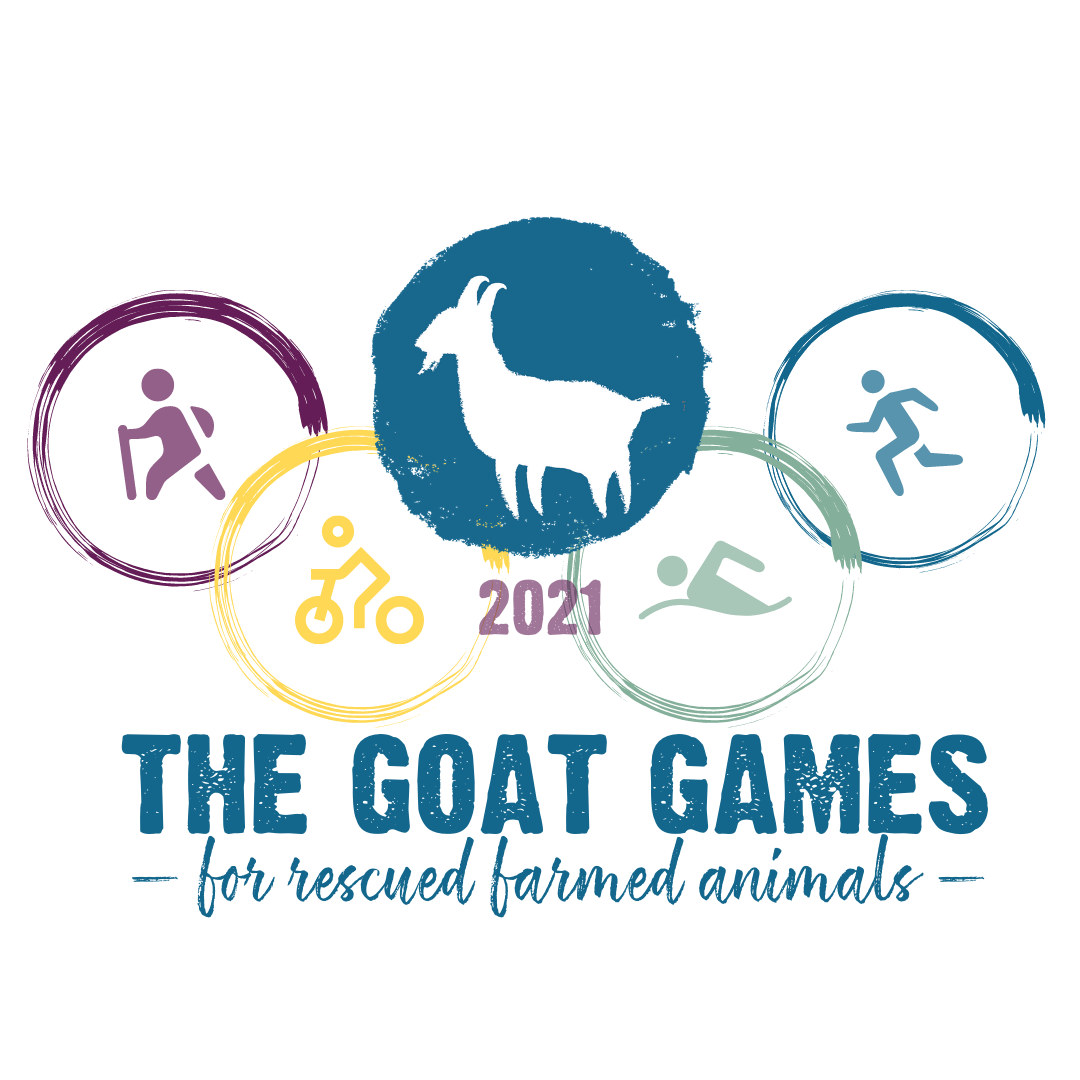
Ready. Set. Goat!
We are so excited to announce the launch of the 2021 Goat Games! Co-hosted by GFAS and Catskill Animal Sanctuary, the Goat Games is a virtual event that challenges human participants to run, walk, bike, hike, or create an activity of their choosing–even binge-watching is a win–to raise funds for a participating sanctuary. A goat champion has been designated for each of the ten GFAS certified sanctuaries, and “athletes” will rally behind the goat representing the sanctuary they want to support.
Our Farmed Animal Program Director Jess Harris says:
GFAS is thrilled to co-present Goat Games 2021 – a first-of-its-kind event benefitting an alliance of certified farmed animal sanctuaries. We are dedicated to supporting our members, building collaboration and promoting the sanctuary movement on a global level. This inaugural event showcases the leadership and excellence our members are known for and is just one more way we can help sanctuaries help animals.
Our 2020 Carole Noon Award Winner Kathy Stevens, founder and Executive Director of Accredited Catskill Animal Sanctuary, spearheaded this event for their organization last year, but thought that it could have even more impact with the help of GFAS and the members of the farm program:
We came up with the idea of The Goat Games in 2020 as a way to inspire friendly competition, raise critical funds and instill hope in people who support our urgent work. The Games are a fun, interactive experience for people of any age and ability located anywhere in the world, and the collective voice of ten sanctuaries will speak loudly for farmed animals everywhere. Funds raised through donations and sponsorships will support the life-saving mission of each participating sanctuary.
Goat Games Co-Host Team Catskill Animal Sanctuary is joined by:
- Team Barn Sanctuary, MI
- Team Farmaste Animal Sanctuary, MN
- Team Heartwood Haven, WA
- Team Indraloka Animal Sanctuary, PA
- Team Kindred Spirits Sanctuary, FL
- Team Little Bear Sanctuary, FL
- Team Pasado’s Safe Haven, WA
- Team Piedmont Farm Animal Refuge, NC
- Team Wildwood Farm Sanctuary & Preserve, OR
For more information on The Goat Games 2021 including registering and/or making a donation, visit thegoatgames.org.
We encourage all of our member organizations to choose a team and participate – let’s build up the sanctuary movement together. Run, walk, hike or bike to the link above to sign up. You goat this!
Six Chimpanzees Moved from Wildlife Waystation to
Chimpanzee Sanctuary Northwest!
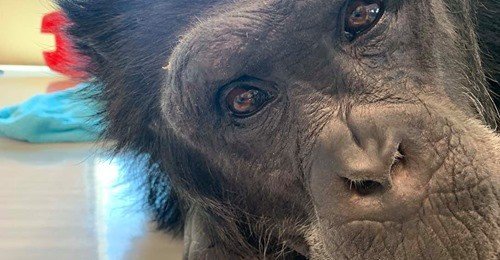
Lucky, Cy, Rayne, Gordo, Dora, and Terry are happily settling into their new home in central Washington. A long way from their cages in California, the group now enjoys new playrooms filled with enrichment, greenhouses with swings, climbing structures and an expansive view from their perches of the valley around them. The closed down Wildlife Waystation had been their home for more than two decades after the laboratory (LEMSIP) they were born into closed in 1996. Life for this special group will involve running, climbing, playing, grooming, nest building and napping all at their own discretion. The skilled team at Chimpanzee Sanctuary Northwest will respectfully oversee it all through attentive caregiving and companionship, veterinary oversight, a nutritious and varied diet, and plentiful enrichment. Follow along with the chimps as they discover the meaning of true sanctuary. Home – Chimpanzee Sanctuary Northwest (chimpsnw.org)
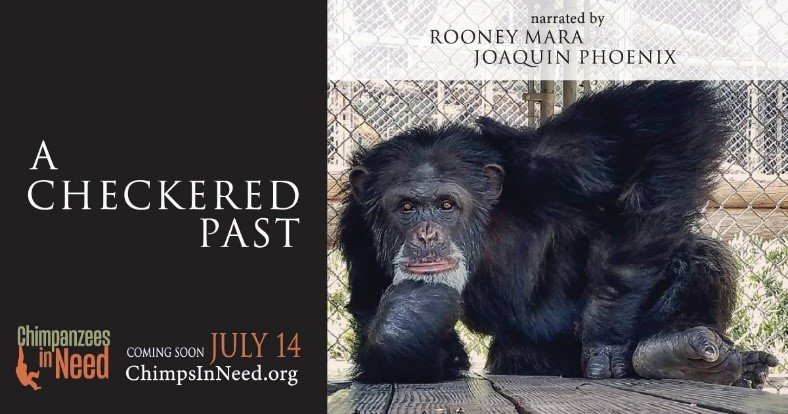
Twenty-six chimpanzees at Wildlife Waystation still await new homes. Funding is needed to build new enclosures at several other GFAS Accredited primate sanctuaries that have stepped up to provide true sanctuary for the remaining chimpanzees. GFAS partner, the North American Primate Sanctuary Alliance (NAPSA) is leading the effort to bring the chimps home and their campaign #ChimpsInNeed is asking for support. NAPSA just announced Shaun Monson’s film short “A Checkered Past” will have its worldwide film premiere on July 14, World Chimpanzee Day. This special film is narrated by Joaquin Phoenix and Rooney Mara, who tell the story of the #ChimpsInNeed stranded at the closed Wildlife Waystation. The film will be streamed on YouTube and Facebook at 6:30 p.m. PT/8:30 p.m. CT. It’s free to view, but donations are appreciated. GFAS stands in support of this vital endeavor. Please donate today at ChimpsInNeed.org to bring them home!
Adopt a Horse Month is Now an Annual Event
The barn door may have closed on May’s Adopt a Horse Month but ASPCA has announced that this was so successful, it will be an annual event (Adopt a Horse Month | ASPCA). Adopt a Horse Month is a wonderful opportunity for equine welfare rescue organizations including many GFAS certified organizations, to promote their animals ready for new homes and new opportunities.
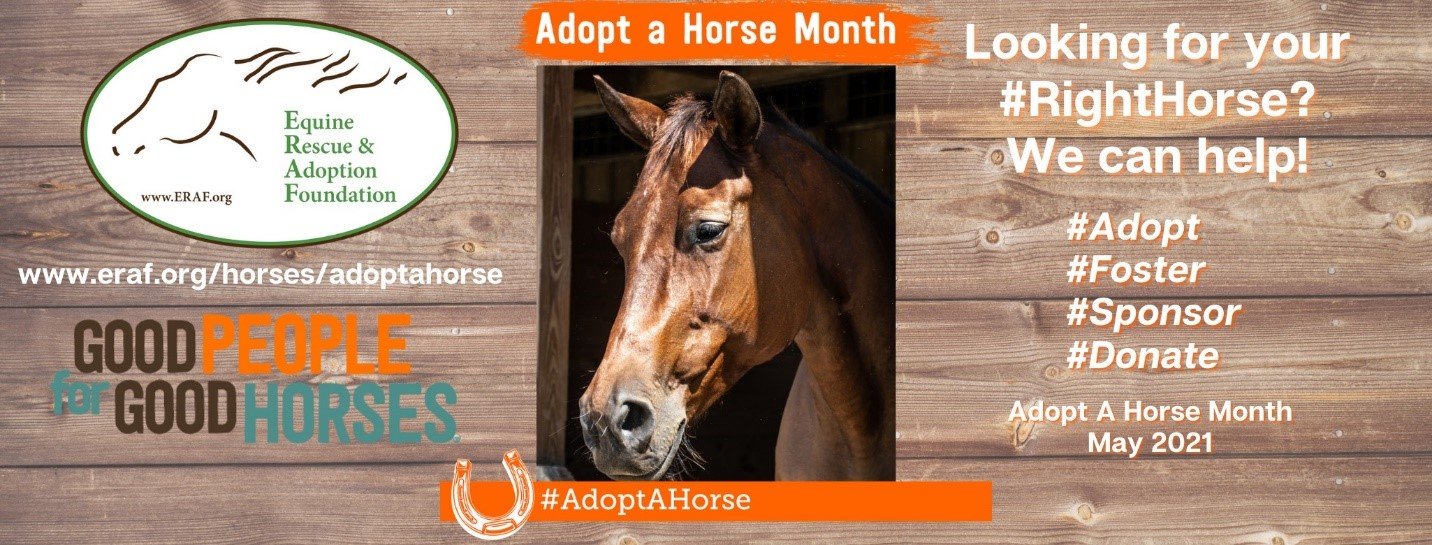
More than 150 equine adoption and rescue organizations participated in this event during the month of May. This event drew more than 36,000 visitors to the My Right Horse website (www.myrighthorse.org/search) and resulted in 319,000 views of adoptable horses. That is amazing!!
Thank you to all who participated including:
Colorado Horse Rescue
Days End Farm Horse Rescue, MD
Equine Rescue and Adoption Foundation, FL
Happy Trails Farm Animal Sanctuary, OH
Horse Haven of Tennessee
Kentucky Equine Adoption Center
Kentucky Humane Society
New Mexico Horse Rescue at Walkin N Circles Ranch
This Old Horse, MN
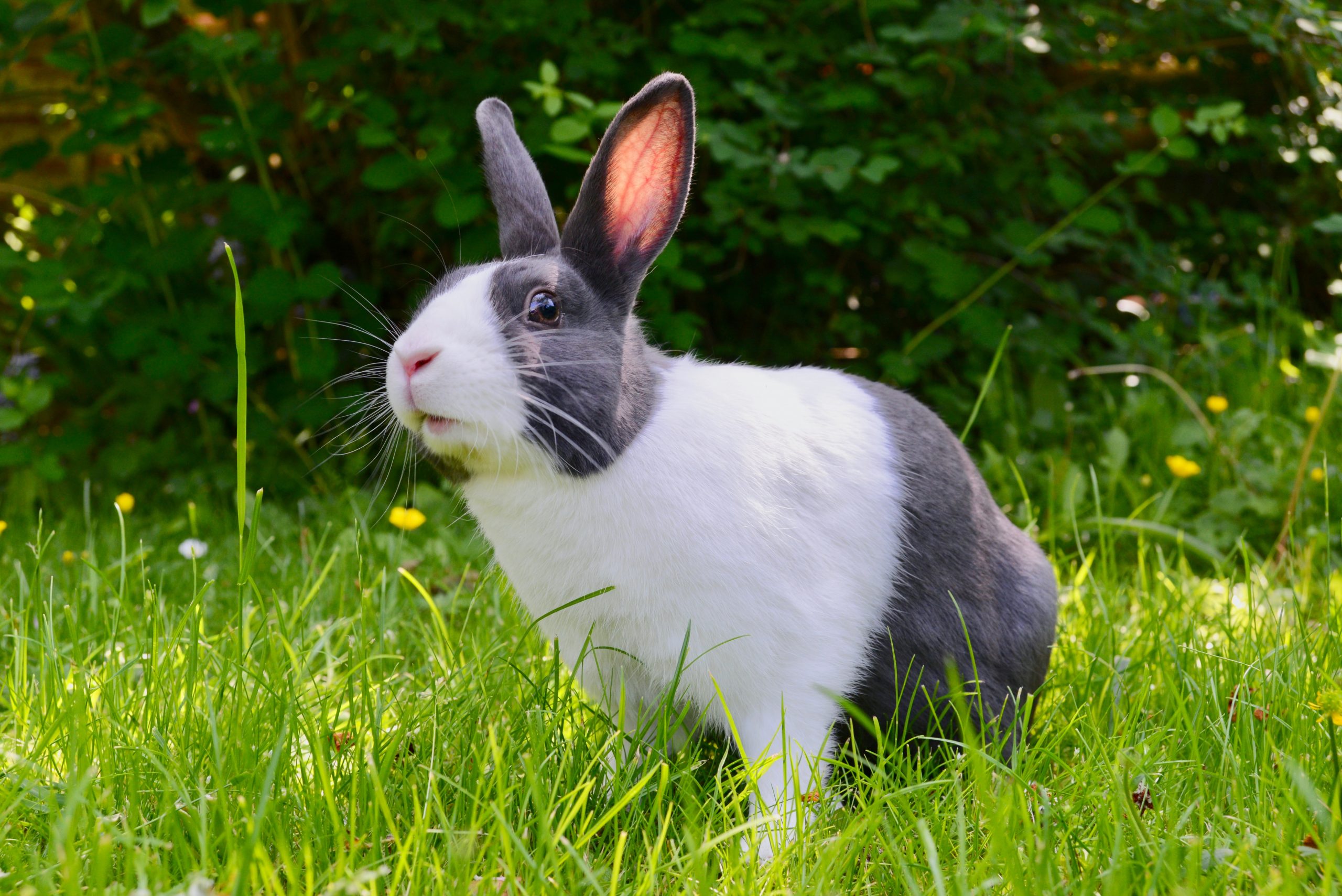 Humans are not the only species facing a new, deadly virus this year. Rabbits in the United States are now at risk for contracting a foreign viral infection previously endemic to Europe called Rabbit Hemorrhagic Virus serotype 2 (RHDV2). This virus affects both wild and domestic rabbits and has a 90% fatality rate. Verified Rabbit Sanctuary of South Carolina reports:
Humans are not the only species facing a new, deadly virus this year. Rabbits in the United States are now at risk for contracting a foreign viral infection previously endemic to Europe called Rabbit Hemorrhagic Virus serotype 2 (RHDV2). This virus affects both wild and domestic rabbits and has a 90% fatality rate. Verified Rabbit Sanctuary of South Carolina reports:
RHDV2 destroys cells in the infected rabbit’s liver causing hepatitis; the virus also creates legions on the heart, lungs or other organs that lead to massive internal bleeding, which explains why many of the rabbits who have succumbed to rabbit hemorrhagic disease are found with bloody fluid around their mouths and noses. It can also cause systemwide inflammation in the rabbit’s delicate body. Death occurs from liver failure or hemorrhaging due to an impairment in the blood’s ability to clot.
Even trickier is that the virus can live in the environment a long time and be transmitted via fomite – objects such as clothing, shoes, or other items in a habitat that have been around the virus which can then transmit it to other animals. The geographic spread of the virus is increasing, from cases originally noted in New York and the Western US, to spread in the Southeast as well. Preventative measures from animal health agencies have been unfortunately slow or nonexistent – while the virus is still considered a “foreign disease”, the existing vaccine remains hard to import from Europe, leaving US rabbits vulnerable.
While GFAS has taken measures to warn groups of the anticipated spread and risks, providing resources for safeguarding sanctuary residents, we are not surprised that many of our groups with rabbits in their care were already on top of the situation. Perhaps none so much as Rabbit Sanctuary, SC, who have been forced to halt intakes and new volunteers, as well as expand existing biosecurity to protect their residents.
Much of the present guidance from the USDA with regard to the prevention of or protection from RHDV2 involves detailed biosecurity measures. Rabbit Sanctuary, Inc. is the only animal sanctuary in the State of South Carolina that has been certified by the Global Federation of Animal Sanctuaries, and is the only rabbit rescue anywhere to have received GFAS recognition. As such, the Sanctuary already has strict biosecurity measures in place. However, with the serious health threat posed by RHDV2, the Sanctuary has enacted an even stronger biosecurity plan to address the problem, incorporating most of the recommendations promulgated by the USDA.
The Rabbit Sanctuary has been formulating a plan to expand the Health Care Building, which would involve extending its screened in porch to add a special quarantine area. This would allow for added protection from any RHDV2 infection risks. However, such a project would of course incur additional costs.
As Erik Bogart of Rabbit Sanctuary notes, the safety measures required at GFAS certified facilities means these sanctuaries already have the upper hand when situations like this arise.
There is some good news on the horizon:
There is word that an American company has been working on developing an RHDV2 vaccine, according to the VIN (Veterinary Information Network) News Service (https://news.vin.com). On May 5, 2021, VIN News reported that Medgene Labs, a biotechnology company based in Brookings, South Dakota, has an RHDV2 vaccine in development. This is potentially very good news, for two reasons: first, a vaccine produced domestically will be more readily available and will avoid the bureaucracy and delays affecting the importation of foreign vaccines. Secondly, while the two European vaccines presently being imported to RHDV2-affected states use inactivated virus derived from the livers of rabbits infected in a lab, Medgene Labs says they are using a recombinant technology similar to the COVID-19 vaccines manufactured by Pfizer and Moderna. What this means is that Medgene’s vaccine, unlike the ones presently imported, does not involve the infecting and euthanizing of rabbits in its production.
We thank Verified Rabbit Sanctuary for the excellent care they provide to rabbits and for sharing this vital information.
To read Mr.Bogart’s full article, click here.
For USDA guidelines on RHDV2 click here.
Featured Sanctuaries
Horse Haven of Tennessee’s Passion for Special Horses
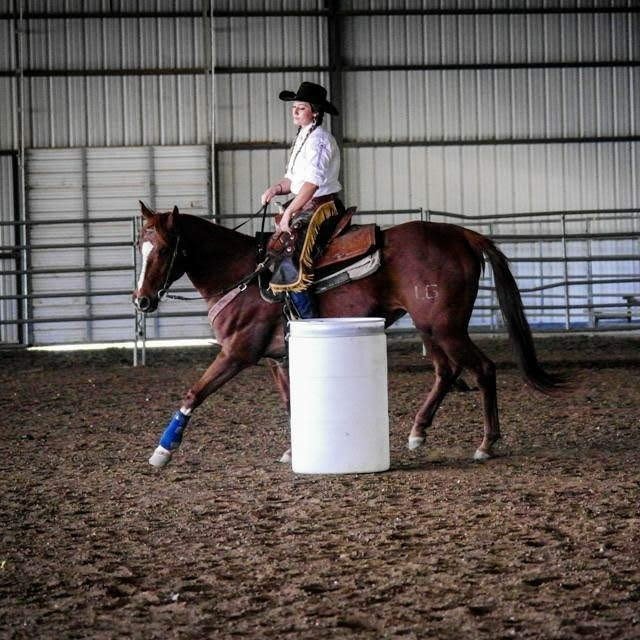 The welfare of each individual animal is the overriding consideration in all GFAS standards and GFAS certified animal sanctuaries and rescues. No one exemplifies this more than the Equine Manager of GFAS Verified Horse Haven of Tennessee, Rikki Lee and her team of volunteers. Her personal mantra is “Walk by Faith, Not by Sight”. Rikki trains blind horses, preparing them for new lives and opportunities. For this newsletter, Rikki has shared some of her insights and experiences that may benefit other rescues and sanctuaries who care for these special horses challenged with partial or total loss of eyesight.
The welfare of each individual animal is the overriding consideration in all GFAS standards and GFAS certified animal sanctuaries and rescues. No one exemplifies this more than the Equine Manager of GFAS Verified Horse Haven of Tennessee, Rikki Lee and her team of volunteers. Her personal mantra is “Walk by Faith, Not by Sight”. Rikki trains blind horses, preparing them for new lives and opportunities. For this newsletter, Rikki has shared some of her insights and experiences that may benefit other rescues and sanctuaries who care for these special horses challenged with partial or total loss of eyesight.
As it often happens, Rikki’s personal mission to help blind horses began with a single rescued horse, Darlin. With a body condition score of 2 and totally blind since she was a foal, Darlin was certainly a candidate for euthanasia. However, as Darlin gained weight, she also showed more spirit and importantly, Darlin showed an enormous amount of trust in her human handler. This simple and at the same time profoundly complex relationship of mutual trust, became the foundation of Rikki’s work with blind horses today. Remarkably and over time, Darlin learned to trot, lope and run a barrel racing pattern under saddle while completely blind.
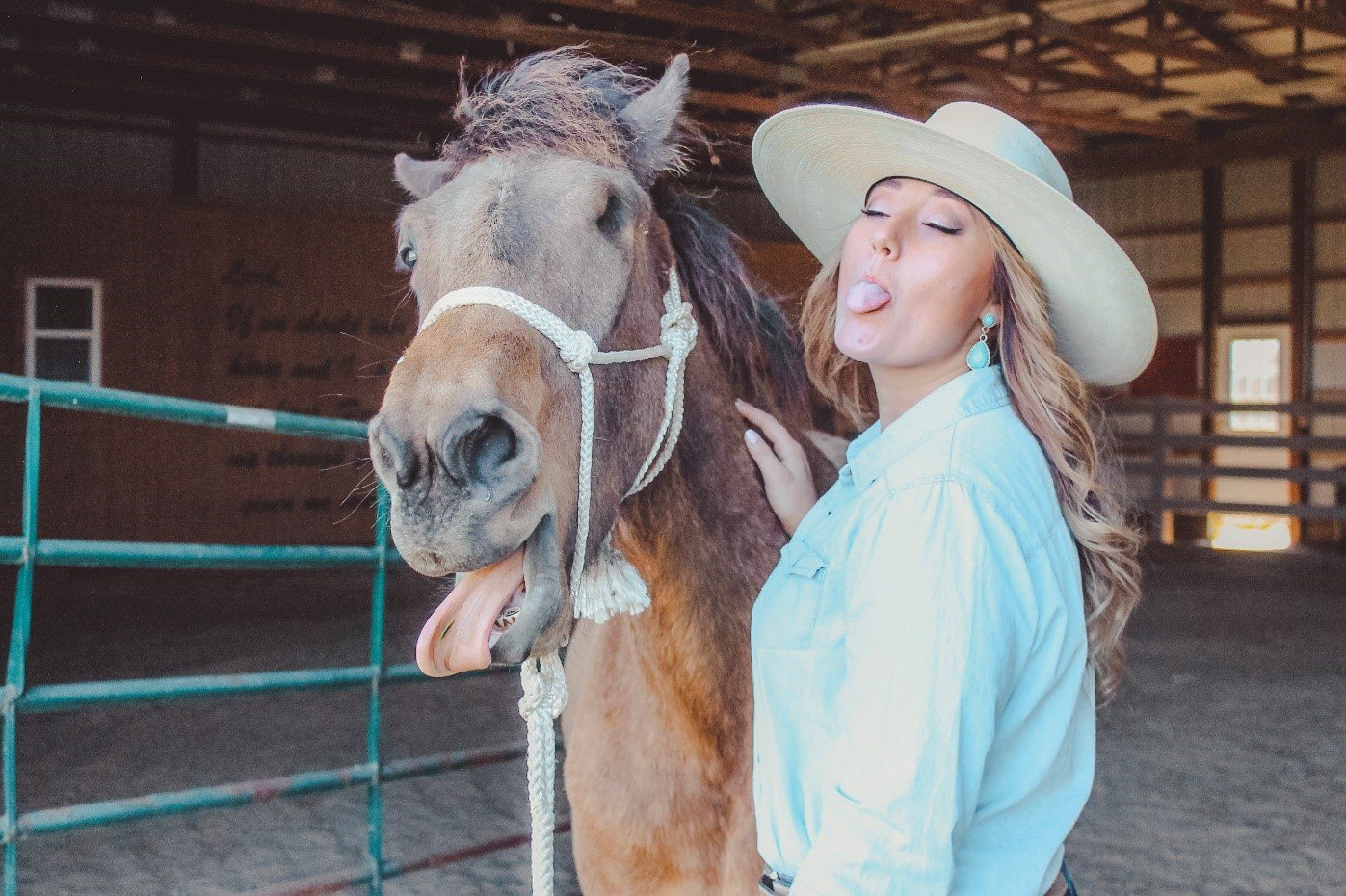 The loss of sight in one or more eyes in horses is not uncommon. Most equine rescues and sanctuaries have animals in their care that have sight losses. The causes are many such as trauma, congenital cataracts, infections, recurrent uveitis and cataracts. Rikki explained that one of the greatest challenges is helping horses who could at one time see, adapt to the gradual or sudden loss of sight. She stated, “Getting a horse to be confident in being a horse all over again is the number one goal in rehabilitating a horse from vision to blind or partially blind. Turnout with the herd is vital; their herd dynamics don’t change, so the more normalcy we provide, the better chance the horse will feel secure.”
The loss of sight in one or more eyes in horses is not uncommon. Most equine rescues and sanctuaries have animals in their care that have sight losses. The causes are many such as trauma, congenital cataracts, infections, recurrent uveitis and cataracts. Rikki explained that one of the greatest challenges is helping horses who could at one time see, adapt to the gradual or sudden loss of sight. She stated, “Getting a horse to be confident in being a horse all over again is the number one goal in rehabilitating a horse from vision to blind or partially blind. Turnout with the herd is vital; their herd dynamics don’t change, so the more normalcy we provide, the better chance the horse will feel secure.”
Rikki assists owners not only in her home state of Tennessee, but also throughout the United States. Soon she hopes to host clinics and offer training to the general public so that owners and their blind horses can thrive, not merely survive. “Your past does not define who you are, it is only a scar to show how strong you are.”
For more information, please visit Horse Haven of Tennessee : Home (horsehaventn.org).
Canada’s One and Only Chimpanzee Sanctuary
Fauna Foundation
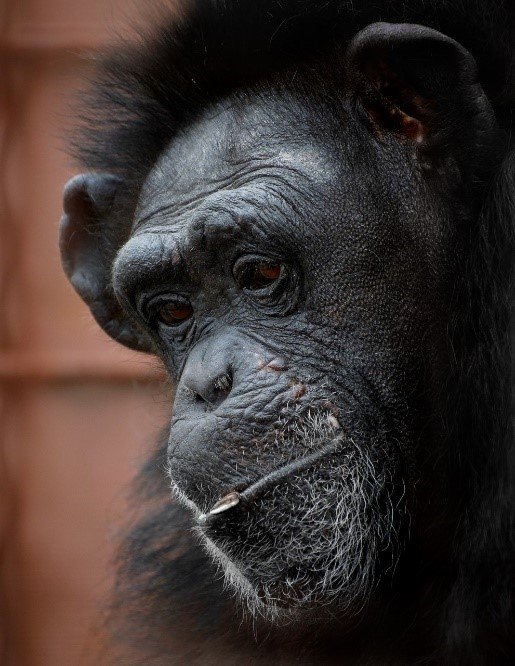
GFAS Accredited, Fauna Foundation in Carignan, Québec provides a peaceful permanent home for animals formerly used in the research, agriculture, pet and entertainment industries. Eight chimpanzees, two rhesus macaques, a handful of farmed animals and a flock of domestic geese reside under the compassionate care of Fauna’s highly experienced staff. Dr. Mary Lee Jensvold is Fauna’s Primate Communication Scientist and Associate Director. An active animal advocate, Jensvold works to improve conditions for captive chimpanzees and specializes in ethological studies of apes, animal intelligence, communication, language and culture.
In addition to caring for the animals, educational outreach programs are central to Fauna’s mission. New this year, Dr. Jensvold will teach a 3-week online course exploring the science of understanding chimpanzee behavior and its application to improve conditions in captivity. This exciting course runs from July 12, through July 30, 2021. During the warmer months in Canada, the group hosts educational tours with information on the history of the organization, the residents, and other special programs.
Fauna Foundation’s ethics are also demonstrated in the environmentally responsible stewardship of their land. Through partnerships with government and non-profit organizations, Fauna promotes the restoration of indigenous plants and animals through reforesting, installing bird nest boxes, and seeding the nature reserve with pollinator flowers. Learn more at faunafoundation.org.
GFAS Certifications
Over the past month, GFAS has certified eight new organizations.
New Certifications
Second Wind Thoroughbred Project, South Carolina
Thoroughbred Retirement Foundation-Blackburn Correctional Facility, Kentucky
Thoroughbred Retirement Foundation-Chestnut Hall Farm, Kentucky
Thoroughbred Retirement Foundation-Lowder Farm, South Carolina
Thoroughbred Retirement Foundation-Nash Farm, Kentucky
Thoroughbred Retirement Foundation-Vandalia Correctional Farm, Illinois
Thoroughbred Retirement Foundation-Wateree River Correctional Institute Farm, South Carolina
Thoroughbred Retirement Foundation-Wheeler Farm, South Carolina
